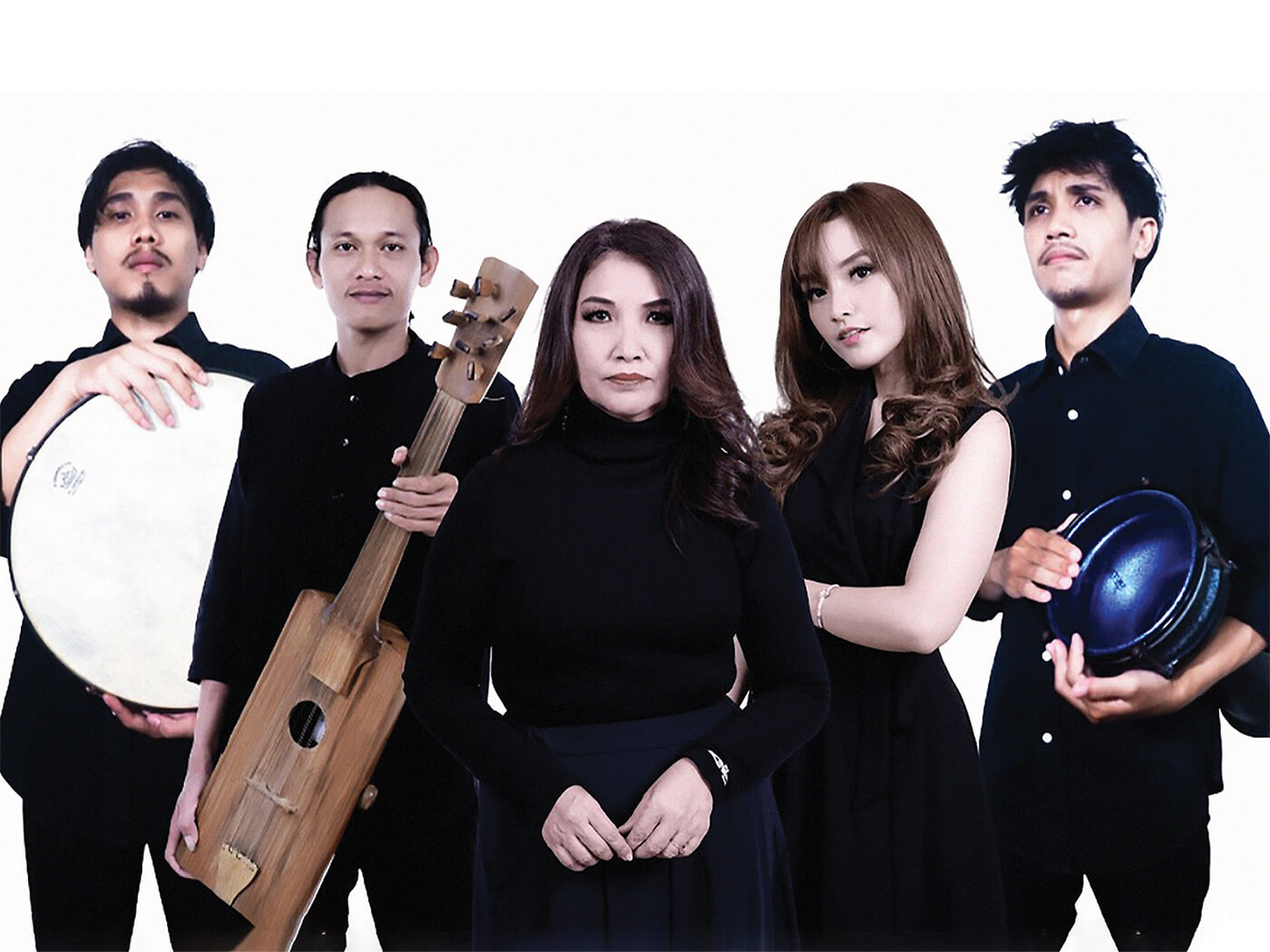Not all band’s names offer immediate clues to the sound of their music. Yet this couldn’t be further from the truth when it comes to North Sumatran band Suarasama, whose moniker is a combination of two Indonesian words: ‘suara’, which means voices or sounds but also opinions, and ‘sama’, meaning togetherness and equality.
Formed in 1995 by ethnomusicology lecturers Irwansyah Harahap and Rithaony Hutajulu, Suarasama made music that was a joyful exploration of the planet’s many musical forms. Timeline was their second album, originally released in 2013 and now reissued for the first time on vinyl by Drag City. But this commemoration of its 10th anniversary is tempered by loss, as co-founder Harahap, a major creative force of the band who was responsible for all the stringed instrumentation, passed away in 2021 at the age of 60. To revisit Timeline now is not only to consider their music but also to pay tribute to the man behind so much of its spirit and power.
Timeline opens with the instantly gripping “Untukmu Yang Berperang”, a song influenced by a traditional West African folk narrative that depicts the catastrophic losses of war. Hutajulu’s gorgeous voice imbues the song’s anti-war message with profound resonance, a communal groove built by the interweaving of the guitar, woodblock and Malaysian percussion. The instrumentation is relatively simple, yet the result sounds as full as an orchestra.
The duo, especially Harahap, were deeply interested in ritual music of various world traditions, a form that naturally produces repetitive, meditative sounds. This is particularly evident on “Dukka”, inspired by Mandailing (Sumatran) and Eastern European musical traditions. A drone opens this song and then serves as its spine while plucked strings create a romantic mood. As the music builds, it starts to resemble an English folk song, its whirl evoking children twirling around a maypole. But the spectral drone is ever present, both anchor and connective tissue, the last sound standing as the song comes to an end.
Harahap excelled at numerous stringed instruments: guitar, gambus (a short-necked Malaysian lute), hasapi (a two-stringed Indonesian lute), the Arabic oud and mandolin, to name just a few. This mastery is on display throughout the album, but perhaps most prominent on the titular song, a near-14-minute transcendent odyssey. His playing is furiously elegant, fingers seeming to dance upon the strings with a lightness that belies the complicated rhythmic patterns of the music. Vocals give the song a sense of community and percussive elements keep the beat, but lute-family instruments are the star of the show. The song charts their history through space and time by incorporating various plucked traditions and techniques from around the world. It’s also a showcase for the 10 stringed saz-guitar that Harahap designed himself, an instrument that combines an acoustic guitar with the Turkish saz, a long-necked lute with a round body.
“Sea Fish” is the song that sounds most like you might hear it on one of Drag City’s American releases, all fingerpicked strings and mounting tension. It’s easy to imagine a melancholic man mumbling over the music, but the Indonesian vocals elevate the song to an emotional space beyond sadness, reaching towards a more nuanced emotional experience. “Awesome” is another graceful tour de force on strings, catchy in a way that feels effortless. Indeed, the entire album feels that way, with the clear-headed air that a lifetime of meditation might yield.
The second-longest song on Timeline is “Journey”, 12-and-a-half minutes of lute-playing that can only be described as the sound of a spiral Eschering itself into infinity. While none of the songs slouch (“Awesome” is the shortest, clocking in at just under five minutes), the band is unquestionably at their best when they go long on spun-out jams that never meander.
Timeline ends on a quieter note, with the peaceful – if a little inert, at least in comparison to the rest of the music – folk-pop of “Kita Berbagi (We Share)”. But the music of Suarasama is suffused with peace and hope from its very existence, a comment on the potential and possibility of global human connection in sound and artistic philosophy. As a document of the band’s desire to fuse disparate yet related musical traditions, and as a stunning and pleasurable listen without the need for context, Timeline is profoundly satisfying.

